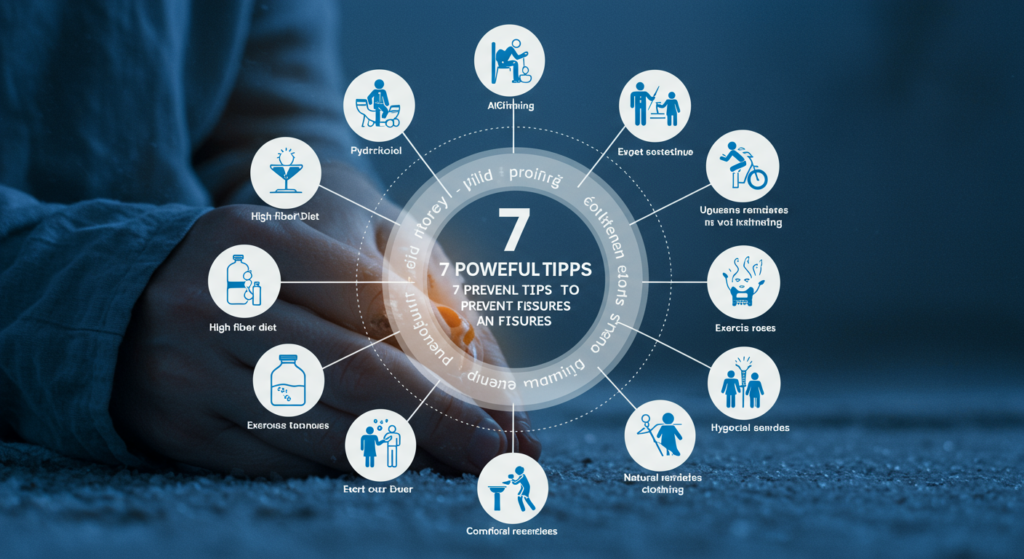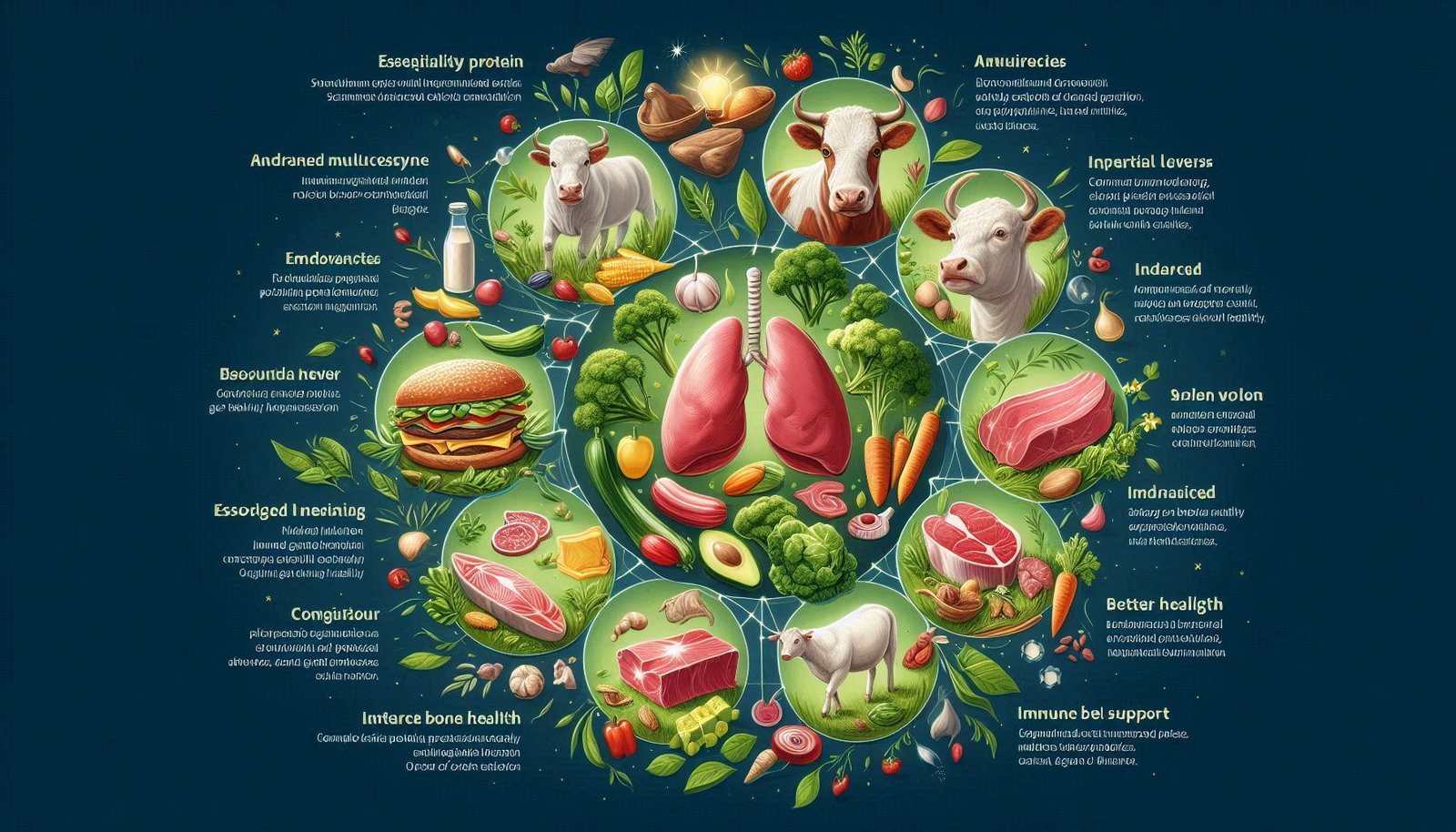
7 Amazing Benefits of Treating Piles and Fissures!
Benefits of treating piles and fissures can enhance your health and well-being. Learn about the benefits of treating piles today!


Introduction
Piles (hemorrhoids) and anal fissures are common yet painful conditions that affect many individuals worldwide. Piles refer to swollen blood vessels in the rectum and anus, while fissures are small tears in the anal canal, often caused by passing hard stools. These conditions can lead to discomfort, itching, bleeding, and even infections if left untreated.
Prevention is key to maintaining digestive health and avoiding the discomfort associated with these conditions. By adopting certain lifestyle changes and habits, you can significantly reduce the risk of developing piles and fissures. This article will discuss seven powerful tips that can help prevent these conditions and promote long-term digestive wellness.
Health Benefits of Preventing Piles and Fissures
Benefits of Treating Piles
To summarize, the benefits of treating piles encompass physical, emotional, and social aspects that enhance overall well-being.
Understanding the benefits of treating piles must be emphasized in healthcare discussions.
Overall, the benefits of treating piles are crucial for enhancing life quality and promoting health literacy.
The benefits of treating piles include easier recovery times and fewer visits to healthcare providers.
Improving education on the benefits of treating piles can foster community support and understanding.
Furthermore, recognizing the benefits of treating piles can enhance awareness surrounding digestive health.
Individuals who understand the benefits of treating piles are more likely to commit to preventive measures, ensuring a healthier future.
Timely intervention and awareness of the benefits of treating piles can lead to a more active lifestyle.
The benefits of treating piles extend beyond physical relief, positively affecting social interactions and activities.
Patients often report improved daily functioning as one of the key benefits of treating piles.
The psychological benefits of treating piles should not be overlooked; alleviating discomfort can significantly improve one’s mental health.
Recognizing the benefits of treating piles early can lead to better long-term outcomes and reduced healthcare costs.
One of the primary benefits of treating piles is the prevention of complications such as infections. When you acknowledge the benefits of treating piles, you are more likely to take proactive steps for your health.
The benefits of treating piles include pain relief, improved digestive health, and enhanced quality of life. Understanding these benefits of treating piles can encourage individuals to seek timely treatment.
Preventing piles and fissures not only helps in avoiding pain and discomfort but also contributes to overall digestive health. By following these tips, you can enjoy smoother bowel movements, a reduced risk of infections, and an improved quality of life. Let’s dive into the details of these preventive measures.

1. Health Benefits of Maintaining a High-Fiber Diet
Importance of Fiber for Digestive Health
Fiber plays a crucial role in digestion by adding bulk to stools and promoting smooth bowel movements. A high-fiber diet helps prevent constipation, which is one of the primary causes of piles and fissures.
Some excellent sources of fiber include:
- Fruits (apples, bananas, pears, oranges)
- Vegetables (broccoli, carrots, spinach)
- Whole grains (brown rice, oats, whole wheat bread)
- Legumes (lentils, beans, chickpeas)
- Nuts and seeds (flaxseeds, almonds, chia seeds)
Reducing the Risk of Constipation
Fiber helps in absorbing water, making stools softer and easier to pass. This reduces the strain during bowel movements, minimizing the chances of developing anal fissures and piles. Including both soluble and insoluble fiber in your diet ensures smooth digestion and regularity.

2. Health Benefits of Staying Hydrated
Hydration and Digestive Health
Drinking enough water is essential for proper digestion and overall health. Water helps break down food, aids nutrient absorption, and keeps the digestive tract functioning smoothly.
The recommended daily water intake is:
- Men: Around 3.7 liters (125 ounces)
- Women: Around 2.7 liters (91 ounces)
Preventing Hard Stools and Straining
Dehydration can lead to hard stools, making bowel movements difficult and painful. When stools are dry, they require excessive straining, which increases the risk of fissures and hemorrhoids. Drinking adequate water helps maintain stool softness, reducing the need for forceful bowel movements.
3. Health Benefits of Practicing Proper Toilet Techniques
Proper Toilet Posture
The way you sit on the toilet significantly affects bowel movements. Sitting in a squatting position helps align the rectum properly, allowing stools to pass easily.
Tips for achieving proper toilet posture:
- Use a small stool to elevate your feet while sitting on the toilet
- Lean slightly forward to create a natural angle for bowel movements
- Relax your abdominal muscles while passing stools
Avoiding Straining and Prolonged Sitting
Straining during bowel movements puts excessive pressure on the rectal veins, increasing the risk of piles. Avoid forcing stools out; instead, let them pass naturally. Additionally, prolonged sitting on the toilet can worsen hemorrhoids. Limit your toilet time to no more than 5-10 minutes.
4. Health Benefits of Regular Exercise
Exercise and Digestive Health
Physical activity stimulates intestinal function, preventing sluggish digestion and constipation. Regular exercise promotes blood circulation and strengthens abdominal muscles, aiding in smoother bowel movements.
Some effective exercises for digestive health include:
- Walking
- Yoga
- Jogging
- Cycling
- Swimming
Improving Bowel Regularity
Regular movement helps keep the digestive system active, reducing the chances of constipation. Activities like brisk walking for at least 30 minutes daily can significantly improve bowel habits and lower the risk of piles and fissures.
5. Health Benefits of Practicing Good Hygiene
Proper Cleaning Techniques
Maintaining good hygiene in the anal area is essential to prevent irritation, infections, and worsening of hemorrhoids.
Tips for effective cleaning:
- Use unscented wet wipes or damp tissue instead of dry toilet paper
- Wash the area with lukewarm water after bowel movements
- Avoid harsh soaps or scented products that may cause irritation
Preventing Infection and Irritation
Poor hygiene can lead to bacterial infections and inflammation, aggravating existing anal issues. Keeping the area clean and dry minimizes irritation and promotes faster healing if you already have mild symptoms.
6. Health Benefits of Using Natural Remedies
Aloe Vera and Witch Hazel
Aloe vera and witch hazel have natural soothing and anti-inflammatory properties that help relieve pain and discomfort caused by piles and fissures.
How to use them:
- Apply pure aloe vera gel to the affected area for instant relief
- Use witch hazel wipes or a cotton pad soaked in witch hazel to reduce swelling and itching
Sitz Baths and Essential Oils
A sitz bath involves soaking the anal area in warm water to ease pain and promote healing. Adding essential oils like lavender or tea tree oil can enhance the healing process.
How to take a sitz bath:
- Fill a tub with warm water
- Add a few drops of essential oil (optional)
- Sit in the water for 15-20 minutes, 2-3 times a day
7. Health Benefits of Wearing Comfortable Clothing
Choosing the Right Fabrics
Tight-fitting clothes and synthetic fabrics can trap moisture, causing irritation and worsening hemorrhoids.
Tips for selecting the right clothing:
- Opt for breathable fabrics like cotton
- Avoid tight undergarments and opt for loose-fitting clothing
- Change out of sweaty clothes quickly to maintain hygiene
Reducing Pressure and Friction
Wearing comfortable clothing helps reduce unnecessary pressure on the anal area, minimizing irritation and friction. This is especially important for individuals prone to developing piles.
Conclusion
Preventing piles and fissures is all about making small but impactful lifestyle changes. By maintaining a high-fiber diet, staying hydrated, practicing proper toilet techniques, exercising regularly, keeping good hygiene, using natural remedies, and wearing comfortable clothing, you can significantly lower the risk of these painful conditions.
Incorporating these habits into your daily routine will not only help prevent piles and fissures but also improve your overall digestive health. Take charge of your well-being today and enjoy a healthier, more comfortable life!



